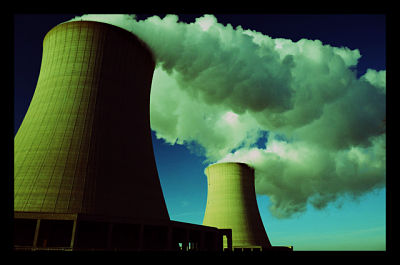Humans are Largely Responsible for Global Warming

A report coming from leading environmental scientists has confirmed the common belief that humans are largely responsible for global warming. The report warned of more rapid ice melt and rising seas if governments do not work together and aggressively pursue tactics to reduce the pace of greenhouse gas emissions.
Over the past 15 years, the Intergovernmental Panel on Climate Change (IPCC) has significantly downplayed the fact that temperatures have risen more slowly, stating that natural variations were responsible. After a weeklong meeting in Stockholm, however, climate scientists stated it “is extremely likely that human influence has been the dominant cause of observed global warming since the mid-20th century.” The “extremely likely” in this case refers to at least a 95 percent probability, which increased from 90 percent in last year’s report, and is also up from 66 percent in 2001.
Consensus and popular opinion should not lead to active decision making; however, with complete conviction of the harmful effects of global warming as well as its cause, these scientists must convince slightly misinformed government officials that action needs to be taken sooner rather than later. There is always the argument that there is no action that can be taken, as this is a negative response from the planet and that we must live with it, but strategy can lead to innovation.
The IPCC let it be known that the effects of greenhouse gas emissions will linger for generations longer than people living today. They restated from their 2007 report that the global warming trends are “unequivocal.”
“As a result of our past, present, and expected future emissions of carbon dioxide, we are committed to climate change and effects for many centuries even if carbon-dioxide emissions stop,” Thomas Stocker, a German scientist, said.
The report will not be available until Monday, September 30th, as heavy editing will take place over the weekend. The summary included several findings, which were eye opening. Carbon concentrations in the atmosphere have increased 40 percent since the mid-20th century and carbon, methane, and nitrous oxide are at levels that are unprecedented in the past 800,000 years. Over the past two decades, ice sheets in Greenland and Antarctica have increasingly lost mass and glaciers are becoming a distant memory as they have been shrinking worldwide. Scientists posit that sea-level rise could reach three feet by 2100.
When the IPCC releases its report, which is appointed by the United Nations, it will turn the heads of many people on the other side of the global warming argument. If action can be taken, strategy needs to be implemented and governmental cooperation has to work in concordance with the scientists’ findings.
– Sagar Jay Patel
Sources: IPCC, Washington Post
Photo: Ars Technica
